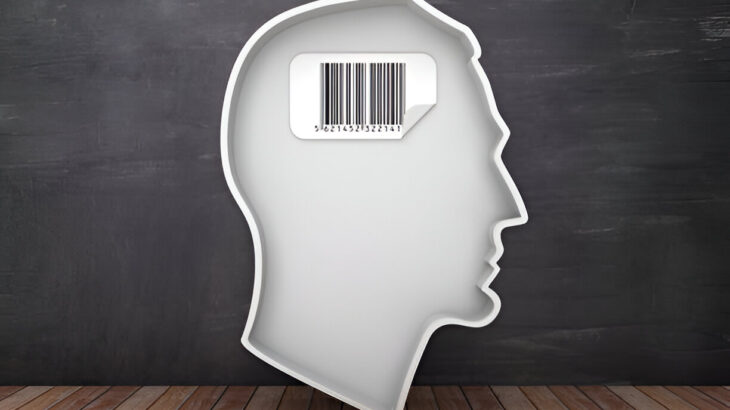E-commerce has become a major part of the shopping experience. More and more people are buying products online, but with this rise in online shopping comes a big concern: counterfeit products. Fake products can harm both the buyer and the seller, leading to financial loss and damage to reputation. This is where security labels come in. These labels play an important role in making sure that products bought online are genuine, safe, and of good quality. In this article, we’ll explore how Security Labels Boost Consumer Confidence in e-commerce.
What Are Security Labels?
Security labels are special tags or stickers added to products to protect them from counterfeiting and tampering. These labels often contain unique features such as:
- Tamper-Evident Labels: These labels show clear signs if someone tries to alter or open the product.
- Holographic Labels: Labels that include 3D images or patterns that are hard to replicate.
- QR Codes: Scannable codes that allow consumers to verify the authenticity of a product online.
- RFID Tags: Tiny tags that track products throughout the supply chain, ensuring they are genuine.
These features help customers know they are buying real products, making online shopping a safer and more trustworthy experience.
How Security Labels Boost Consumer Confidence in E-Commerce
1. Guaranteeing Product Authenticity
When shopping online, customers can’t touch or see a product in person before buying. This makes it harder to know if the item is genuine or if it’s a counterfeit. Security labels solve this problem by giving buyers a way to confirm that the product is authentic.
- Example: A customer buys a designer handbag from an online store. The bag has a holographic security label, which ensures that the bag is real and not a cheap fake. Seeing this label gives the buyer confidence in their purchase.
2. Preventing Fraud and Counterfeiting
One of the biggest concerns in e-commerce is the sale of counterfeit products. Counterfeit goods can range from fake electronics to low-quality clothing and accessories. These products can be harmful and unsafe for consumers. Security labels, such as tamper-evident seals and QR codes, make it easier for customers to avoid buying counterfeit items.
- Example: A customer orders a smartphone online. The phone comes with a tamper-evident label. If the label is broken, the customer knows the phone might have been tampered with, protecting them from fraud.
3. Enhancing the Shopping Experience
When customers see security labels on the products they purchase, they feel more secure and satisfied with their decision. Knowing that a product has passed checks for authenticity gives shoppers peace of mind. They are more likely to trust an e-commerce website and make repeat purchases.
- Example: A customer buys a bottle of high-end skincare online. The product has a QR code security label. After scanning it, the customer is directed to the brand’s official website, where they can confirm the product’s authenticity. This transparent process makes the buyer feel more confident.
4. Easy Product Verification
In the world of online shopping, it’s important that customers can easily verify the authenticity of their purchases. Security labels with QR codes and RFID tags make it simple for consumers to verify products without needing to contact customer service or visit a physical store.
- Example: A buyer purchases a luxury watch online. The watch has a QR code label that they can scan with their phone. The scan takes them to an official website where they can confirm that the watch is authentic. This instant verification process builds trust and makes customers feel more comfortable shopping online.
5. Increasing Trust in E-Commerce Brands
Online shopping can feel risky because of the lack of in-person interaction. However, e-commerce brands that use security labels show their commitment to quality and customer safety. When a brand uses security labels, it communicates that they care about their customers and want to provide a trustworthy shopping experience.
- Example: An online clothing store uses security labels on its products. These labels reassure customers that the clothes they buy are genuine and of high quality. As a result, the store builds a loyal customer base and improves its reputation.
Why Are Security Labels Important for E-Commerce?
- They Protect Customers: Security labels ensure that the products customers buy online are authentic and safe.
- They Prevent Financial Loss: Counterfeit products can result in lost sales and damage to a company’s reputation. Security labels help prevent these losses.
- They Build Trust: By using security labels, e-commerce businesses show customers that they take product authenticity seriously. This builds trust and loyalty, leading to more sales.
- They Encourage Repeat Business: Customers who feel confident in their purchase are more likely to return to the same website for future purchases.
Conclusion
In today’s e-commerce world, security labels are essential for building consumer confidence. By guaranteeing product authenticity, preventing counterfeiting, enhancing the shopping experience, and making it easy for customers to verify products, security labels play a vital role in the online shopping process. For businesses, using security labels helps prevent fraud, protect their brand, and build trust with their customers.
As online shopping continues to grow, businesses that use security labels will be better equipped to ensure customer satisfaction and stand out in the competitive e-commerce market. Security labels not only protect consumers but also help create a safer and more reliable online shopping environment.
